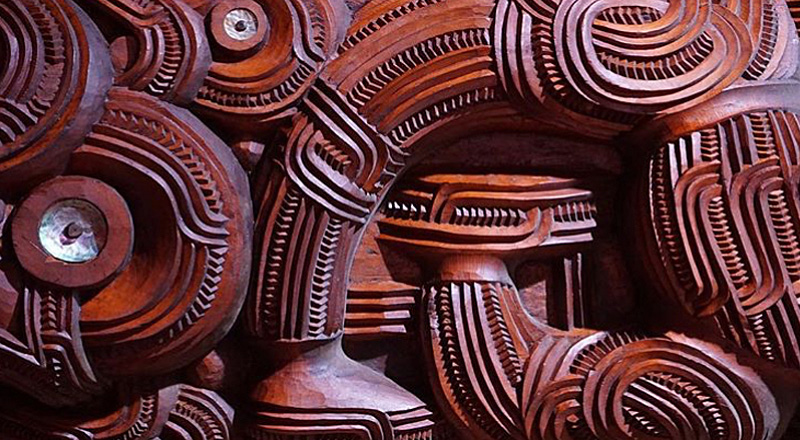Understand Agree Act
Tena tātou katoa e te iwi mīhana… (Greetings to all the people in mission),
The whakataukī (Māori proverb) for this post is: “Tūturu whakamaua kia tina! Tina! Hara mai te toki. Haumi e, hui e, tāiki e!” [Dynamically translated as, we comprehend and agree, let’s make it so]. It’s the Māori equivalent of “Amen!”. To give a fuller rendering, it is to fully embody what is said so that together the group in agreement can bring it to life or make it tangible. The sentence “Hara mai te toki” is also often used separately. It infers the cut of the carving tool (toki) that leaves a permanent mark. So, having been indelibly etched into our being, the agreed idea is joined (haumi) in the group, brings the group together (hui) and weaves them into something useful (tāiki): unified action.
The COVID-19 crisis has stripped away our thin veneer of niceness.
If you follow social media even in the slightest way, you’ll no doubt wonder if it will ever be possible again for Christians, let alone societies, to come together in agreement toward unified action for the betterment of all. There is so much polarisation going on and it’s only getting worse. The COVID-19 crisis has stripped away our thin veneer of niceness and people are ready to defend deep seated values that for so long have been restrained in order to ‘get along’.
In missions, we have been taught to consider some of our values as “secondary issues”. I say values, but they’re more commonly considered doctrines. I prefer not to refer to such things as “doctrine” because it adds a sacrosanct (tapu, or holy) aspect to ideas or values that suggests they cannot be questioned, critiqued or even discussed. For many issues considered secondary in missions, it is usually fine to hold them as personal convictions so long as you do not impose them on others or consider them essential for salvation.
For example, speaking in tongues, the charismatic gifts in operation today, positions on divorced people serving in missions, the roles of women in home and ministry, schooling preferences, political convictions, raising and using funds, etc. We may have preferences about these things, but we usually do not experience too much dissonance working alongside people with different preferences.
Most missions organisations will have policies that provide an official position on many secondary issues. You’re welcome to hold a contrary view, but if you wish to belong to the organisation you need to accept that your preference will not be fulfilled. Depending on the strength of the preference, it may not be a problem. We accept that our ‘secondary issue’ is not a deal breaker against the more desirable benefits of belonging. We continue on with a “don’t ask, don’t tell” commitment to community. Or, we used to.
Today we can find ourselves increasingly caught up in a no-holds barred tussle, where everything is open to be questioned and the disenfranchised express a desire for their perspective to be validated. It may not have deeply impacted grassroots missions yet, but there is a tsunami sweeping the world that will leave little untouched. We’re in the labour pains of massive change, following a generational period of gestation.
When doing more of the same is met with diminishing returns, we have to wonder if our modelling is no longer fit for purpose.
A push for new priorities/preferences is growing in the missions theory space as the disruption caused by COVID-19 has us thinking about why missions is done, how it is done and what should be done. The opportunity may be post-pandemic, but the issues are post-colonial. In this push I am a protagonist. I’m following the adage that we should “never let a good crisis go to waste” (supposedly said by Winston Churchill). I am one of a growing number of ‘malcontents’ who dare to poke at some supposedly sacrosanct assumptions about missions with a genuine desire to see if we can develop a better understanding of God’s mission for a new era.
The point behind the poke is not to deconstruct ideas for the sake of it, but to cut new grooves of understanding in order to shift the power, broaden the scope of inclusion and increase effectiveness in missions—a pathway to greater unity. When doing more of the same is met with diminishing returns, we have to wonder if our modelling is no longer fit for purpose. To switch from the carving to a construction metaphor: to remodel well we may need to dig up some of the foundations.
With my WEA Mission Commission leader hat on, I recently published an essay on the COVID-19 impact on the future of missions. It’s the result of listening to missions conversations over the past five months or more, through a filter of constructive missions critique. I take the liberty to embed some themes I’ve been working on, as an offering to readers with the hope that the themes might lay some groundwork for new perspectives on missions into the future, rooted in ancient perspectives on missions in Scripture that are obscured from modern industrial eyes.
Like any offering, receiving it is optional. Nevertheless, I believe the conversation that it generates will prove helpful. Feedback so far is confirming that conviction. As the conversation continues I am eager to see understanding grow, to the point that we will see unifying value in a fresh missions perspective. That we will bind together in new ways, and act with one mind and one voice, as we #stayonmission.
Whakapaingia te Atua, to tatou kaiunga ki te ao whanui (May we be blessed as God sends us into the wider world),
Jay






